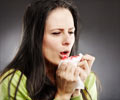A booster dose of vaccination for parents of newborns and other family members offers a protective cover for newborns against life threatening form of whooping cough.
Paediatricians at the Royal Hospital for Sick Children in Edinburgh cited important examples of two infants whose unvaccinated families were perhaps the cause of fatal invasive pertussis.The first case mentioned by doctors was of a one month old baby who had been suffering cough and running nose for about 5 days. The parents of the infant and his sibling had experienced severe cough two weeks prior to the infant’s sickness.
Though the older sibling had received vaccination, it was not clear if his parents did. The one month old boy could not survive the attack and died soon.
Take this case-
Mother of a six week old infant was suffering from cough for 2 weeks. The infant also began to suffer cough and breathlessness. From the parents’ immunisation chart it was evident that though the mother had received her vaccination, the father hadn’t. The infant succumbed to the illness in no time.
The doctors are of the opinion that most of the time infants acquire the disease from affected household members; 50% of the time, the infection was from parents.
Advertisement
Advertisement
SAV











